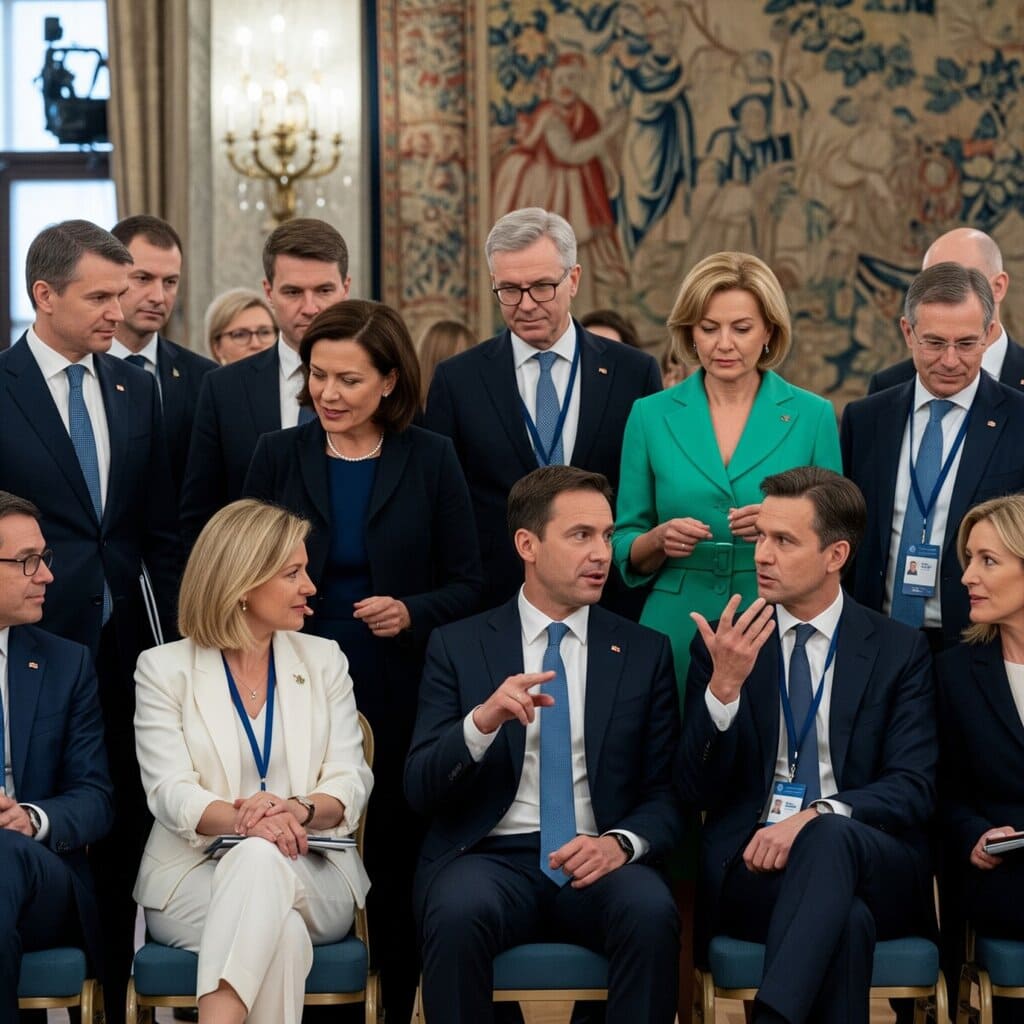Europe’s Russia policy failure is fast becoming a defining crisis of the 21st century for the continent—one that many leaders remain unwilling to publicly acknowledge. Framed initially as a principled response to Russian aggression, Europe’s strategy has instead exposed alarming vulnerabilities across its energy systems, industrial sectors, and diplomatic posture. Far from strengthening Europe’s position in the world, it has left the region economically weakened, strategically compromised, and increasingly reliant on transatlantic lifelines.
The Energy Gamble That Backfired
The most immediate and tangible impact of Europe’s policy towards Russia has been the breakdown of affordable energy supply chains. Russian natural gas once accounted for over 40% of EU gas imports. Severing this link—while politically symbolic—was economically disastrous. Replacing Russian gas with U.S. liquefied natural gas (LNG) and short-term contracts from Middle Eastern suppliers has not only driven up prices but introduced volatility and long-term uncertainty.
European households now face some of the highest energy prices in the developed world. Industries that once relied on predictable input costs are shutting down or shifting production to countries with more stable and affordable energy frameworks. This is particularly true in Germany, where the chemical and automotive industries—pillars of the European economy—are facing contraction or relocation.
A Blow to Industrial Competitiveness
The consequences of Europe’s Russia policy failure go beyond energy bills. High energy prices are bleeding into every corner of the real economy. Steel production is down. Fertiliser plants are closing. Export margins are shrinking. Europe’s reputation as a hub of high-value, high-efficiency industrial output is under serious threat.
Many multinational firms are now questioning the long-term viability of operating in a region where strategic decisions appear politically reactive rather than economically rational. Investment is slowing, growth is stagnating, and once-dominant economies like Germany and Italy are struggling to maintain their edge.
Strategic Autonomy—or Transatlantic Dependency?
Proponents of the current policy often cite “strategic autonomy” as a guiding principle. Yet the reality paints a starkly different picture. Europe is now heavily dependent on U.S. energy exports, U.S.-led security structures, and U.S. financial systems. Washington’s influence over EU foreign policy has grown considerably, raising legitimate concerns over sovereignty and independent decision-making.
The economic beneficiaries are clear. U.S. LNG exporters have posted record profits. American defence firms are experiencing unprecedented demand as Europe re-arms. Wall Street continues to expand its footprint in European markets. In contrast, Europe’s core interests—affordability, self-reliance, and long-term competitiveness—are being steadily eroded.
Public Sentiment Is Shifting
Increasingly, the public is seeing through the narrative that a Russian invasion of Western Europe is imminent. While the war in Ukraine is undeniably serious, for many EU citizens in countries such as France, Spain, and the Netherlands, the threat feels abstract—while the economic pain is real and immediate.
Surveys conducted by leading think tanks such as the European Council on Foreign Relations show a growing disconnect between elite policy and popular opinion. Voters are asking hard questions: Why are we paying more for less? Why are our industries failing? Who actually benefits from this confrontation?
As elections approach across key EU member states, these sentiments are being weaponised by populist and alternative parties calling for a reset in foreign policy and a renewed focus on national interests.
No Strategy, No Exit, No Debate
Perhaps the most concerning aspect of Europe’s Russia policy failure is the lack of a clear endgame. There is no roadmap for stabilising relations with Russia. There is no serious discussion of rebuilding trade or diplomatic bridges. What remains is a policy built on sanctions, isolation, and moral indignation—without a long-term vision.
Unlike Cold War strategies that were backed by structured diplomacy and containment frameworks, today’s approach appears ideologically driven and dangerously short-sighted. It has left Europe with few options, dwindling influence, and growing internal dissent.
Conclusion: A Reckoning on the Horizon?
If Europe is to navigate out of this cul-de-sac, it will need to rediscover the art of diplomacy, strategic pragmatism, and above all, accountability. This doesn’t mean appeasing Moscow. It means designing a policy that prioritises European interests over foreign influence and reactive rhetoric.
The current trajectory is unsustainable. Economically, strategically, and socially, the pressure is mounting. Whether European leaders are willing to confront the consequences of their decisions—or wait until they are forced to—is now the question shaping the continent’s future.
Europe’s Russia policy failure is no longer just a subject for think tanks and politicians—it’s an issue impacting millions of lives across the continent. Whether you’re a business owner, an energy consumer, a policymaker, or simply someone concerned about Europe’s future, your perspective matters.
We invite you to share your thoughts below.
Leave a comment and join the growing debate on how Europe should navigate this complex and rapidly changing geopolitical landscape. Insightful, respectful dialogue is not only welcome—it’s essential.
Recommended Resources
What do you think?
Has the policy gone too far, or is it a necessary stance in a dangerous world?
Is Europe protecting its values—or sacrificing its sovereignty and economic stability?


We want to hear your what you have to say